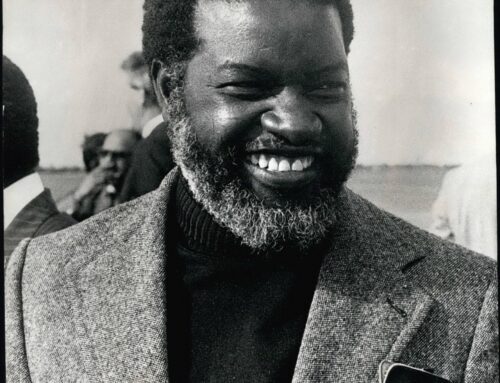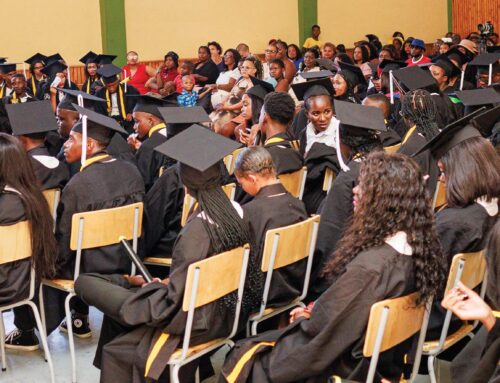Effective leadership in the education sector is vital for national development. At the school system level, this is especially so, because when schools thrive and provide strong educational outcomes for learners, the broader society thrives too.
Global research has “provided consistent evidence which demonstrates the potential and both the positive and negative impacts of leadership, particularly principal leadership, on school organisation, culture and conditions and through this, on the quality of teaching and learning and student achievement”. Furthermore, “Comprehensive and large scale systematic reviews of, by and large, quantitative data have also found that leadership is second only to classroom teaching as an influence on pupil learning and that such influence is achieved through its effects on school organisation and culture as well as on teacher behaviour and classroom practices”.
It is clear, then, that the role of school principals on pupil achievement and the overall success of the school system is profound, and that their ability to lead effectively and transformationally has significant implications for educational development. And it is for this reason that Old Mutual is proud of its ongoing partnership on leadership development in the education sector, with the African Leadership Institute (ALI) and the Ministry of Education, Arts and Culture (MoEAC).
The Old Mutual Principals Academy (OMPA) was initiated in 2013, and this active collaboration in nation- building, social upliftment and empowerment seeks to benefit the next generation of leaders and to positively impact Namibia’s future.
Through the programme, public school principals pursue a Certificate in Transformational Leadership at the African Leadership Institute – a Level 5 qualification accredited by the Namibia Qualifications Authority. To date, through Old Mutual’s social investment of over N$5.3 million, 398 principals of primary, combined and secondary schools across Namibia’s 14 regions have completed their training and achieved the Certificate in Transformational Leadership.
Importantly, ALI’s approach is holistic one – developing both the human capital (skills and knowledge) and the social capital (values, attitudes, beliefs) of a leader ‘to ensure long lasting effectiveness, servanthood and success’. The curriculum inspires and enables the individual to lead powerful transformation where they are – in this case their school and community. The outcome of this intervention can be summarized as transformation of the individual (understanding him/herself, transformation of character, defining of purpose, developing of emotional intelligence and social capital), transformation of relationships (at work and at home), transformation of management skills, productivityin the workplace and work ethics, and transformation of communities by developing social responsibility. The individual learns to lead themselves more effectively; to build character to sustain and endure the pressure of position, failure and success; and to understand the importance of prioritized relationships and living a balanced lifestyle. Close to half the curriculum emphasises how to successfully build teams to produce results and to deliberately apply skills to be more effective in getting the job done. “The outcome of the ALI intervention is leaders with soft hearts, tough minds, upright characters & skilful hands and leaders with the confidence to lead: Courageous/Brave leaders who say ‘Yes, I can and I will!’”
“Strengthening school leadership to improve teaching and learning is one of the strategies put forward to achieve SDG target 4.c of the Education 2030 Agenda”, and this training approach is in line with UNESCO’s recommendations towards this goal: “School leaders need proper initial training and continuous professional development to succeed. Such training should promote leadership techniques, pedagogical and instructional guidance, and the vision and overall goals of the school system. Research has found that principals participating in instructional leadership training are then more engaged with teachers at their schools.”
The impact of the academy on school outcomes where the trained principals are based is palpable. The Ministry of Education has reported positive results such as improved academic results, greater dedication and improved self-esteem of teachers and learners, improved care and maintenance of school infrastructure; and a heightened awareness of community and social issues impacting students – including food and water security, amongst other things. Participants in the programme have also shared the impact on their ability to lead. One principal explained: “I am an empowered leader as a result of the training. After the sessions on Self-Leadership, I am able to manage myself better in terms of decision making, priority clarification and time management. The module on Transformational Teambuilding equipped me to have a better understanding of my team and as a result I now have the ability know how to get the best out of them. Furthermore I was equipped to exercise delegation of responsibilities more effectively which enables me to accomplish specific objectives – this has had a positive effect especially regarding learning support.”
There is no doubt that investing in education by empowering school leaders delivers wins for everyone – learners, communities, and the nation at large. Old Mutual is excited to have renewed its partnership agreement with ALI and MEAC for another three years under a new name: the Old Mutual School Transformation Leadership Programme. We remain committed to positively impacting the education sector in pursuit of our national, regional and international educational objectives, and thereby enabling positive futures.
Issued by:
Mauriza Fredericks
Manager: Communications and Social Responsibility
Email: Mfredericks2@oldmutual.com
Tel: +264 (61) 299 3203








